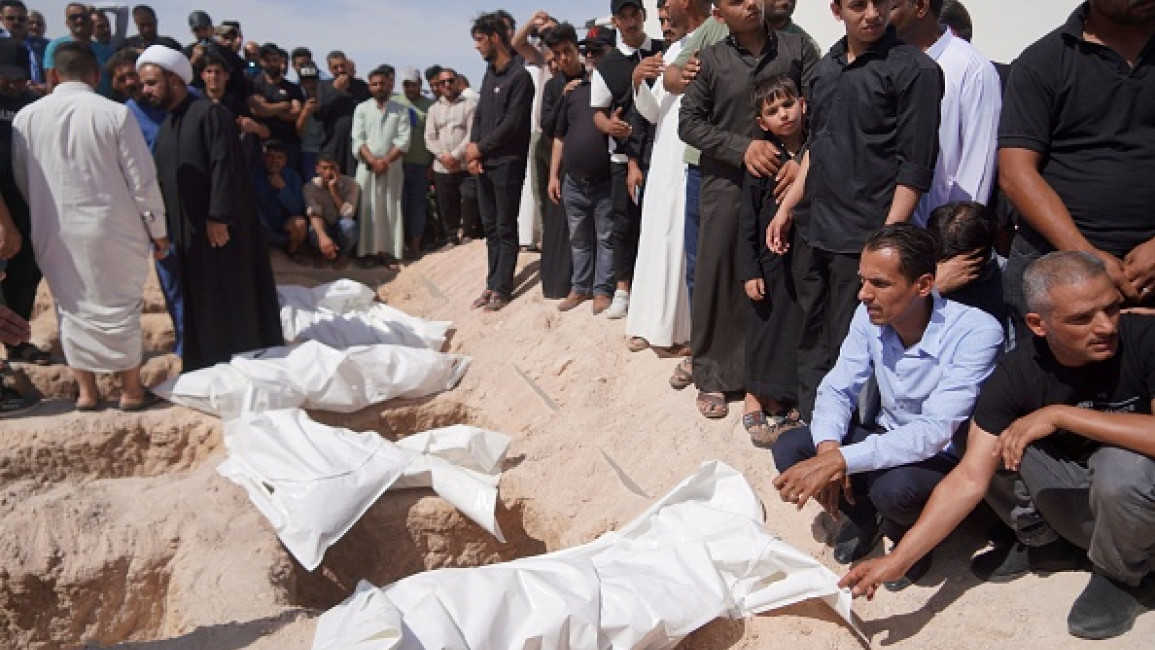Iraq lays to rest 78 killed by IS and found in mass grave
Funerals were held Tuesday in Iraq for 78 people killed by the Islamic State group in 2014 and uncovered in a mass grave, in one of the militant group's worst atrocities.
DNA testing was used to identify the remains of hundreds of people slain by IS after their discovery in 2017 at the grave site on the outskirts of Mosul, in the country's north.
The extremists seized a large chunk of Iraq's territory and proclaimed a "caliphate" in 2014, carrying out abductions, beheadings, ethnic cleansing, mass killings and rapes.
In June that year, IS members attacked Badush prison and freed Sunni inmates before forcing around 600 mostly Shia prisoners into a truck, driving them to a ravine and shooting them dead.
Seventy-eight of them were laid to rest on Tuesday in Baghdad and in the Shia holy city of Najaf, in central Iraq, AFP journalists reported.
دولة العراق تشيع 78 فرد أعدمهم داعش الإرهابي . pic.twitter.com/E0xhhC9X2J
— مغرد طموح (@Yabishmad) May 16, 2023
"We feel pain and sorrow, but at least we got his remains," Khaled Jabbar said during the funeral procession in Najaf for his cousin, who was among those killed.
In front of Baghdad's Martyr Monument, coffins draped in Iraqi flags were carried on army vehicles and accompanied by a military band.
"About 1,000 prisoners, mostly Shias, were executed by IS members inside the prison and at other sites," according to UN investigators.
The killings were described as "crimes against humanity" by UNITAD, the UN body set up to investigate IS crimes in Iraq.
The 78 victims buried on Tuesday were from a group of 605 missing people, said the Iraqi health ministry's forensic director Zaid Ali Abbas.
The first mass grave containing victims from Badush prison was discovered in 2017, with dozens of remains exhumed from it in 2021.
The slow and laborious process of taking DNA samples from victims and families of the missing continues.
The long and brutal history of enforced disappearances in Iraq 👇
— The New Arab (@The_NewArab) April 15, 2023
✍ @pauliddon https://t.co/fmrtlLhwYV
IS's seizure of Mosul in 2014 helped it to briefly hold roughly one-third of Iraqi territory, and for a time there were real fears of a major attack on the capital Baghdad.
Baghdad declared victory over the militants in December 2017, and work to uncover their crimes is still ongoing.
The United Nations estimates IS left behind more than 200 mass graves which could contain up to 12,000 bodies.
Authorities in Iraq frequently announce the discovery of mass graves, including some containing IS extremists themselves and others dating from the regime of Saddam Hussein, who was overthrown during the US-led invasion of 2003.



